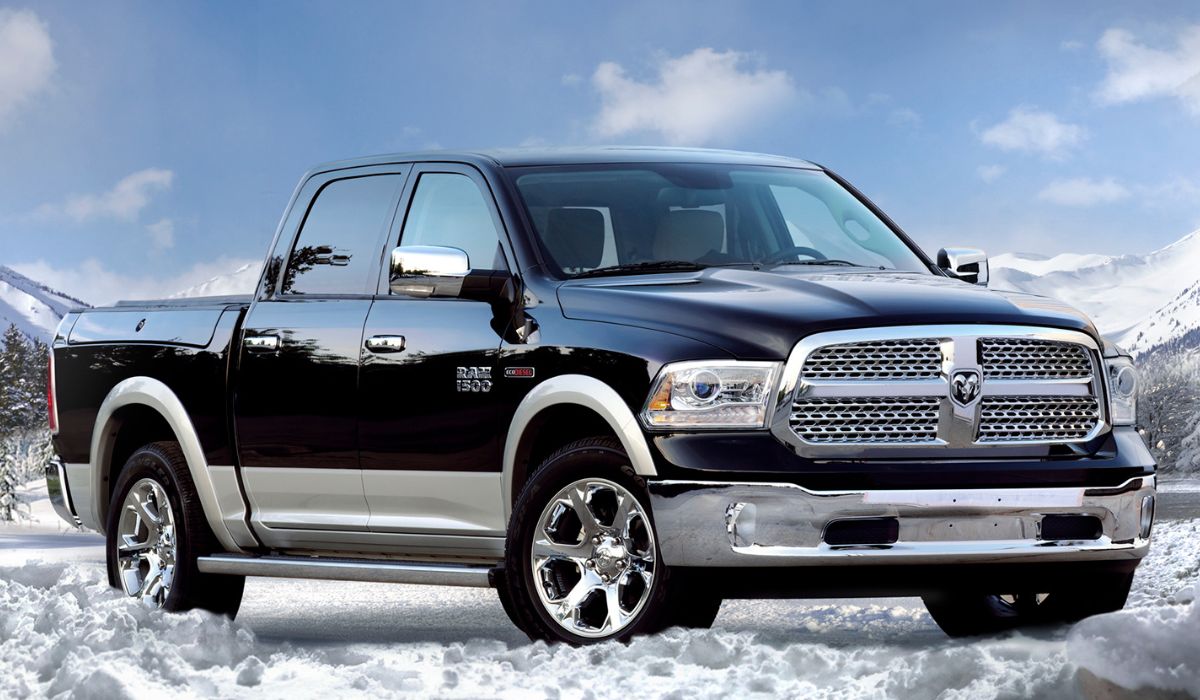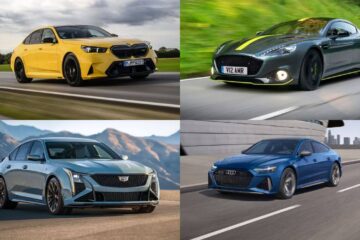I remember the day my neighbor, Dave, arrived in our driveway behind the wheel of a brand-new Ram 1500 EcoDiesel. The robust engine noise from the 3.0L V6 engine was music to all ears in our very suburban cul-de-sac. It was the perfect truck: muscular yet approachable, with an impressive fuel efficiency and a decent towing capacity. But six months later, Dave’s dream ride became a headache. From unexpected check engine lights to costly turbo repairs and exasperating dealership visits, his journey turned into a cautionary tale for anyone considering buying a used Ram EcoDiesel.
While the Ram EcoDiesel has received accolades for its torque and fuel economy, specific model years have been challenging for some owners, leaving them frustrated and incurring thousands of dollars in repair bills. So, if you are considering purchasing a used one, understanding which Ram EcoDiesel years to avoid will prevent you from a lifetime of headaches. EGR cooler failure from failed re-gen attempts due to low oil pressure issues and related failures earned some 3.0 EcoDiesel a reputation for being unreliable and expensive to own.
In this article, we’ll discuss the exact EcoDiesel years to avoid, the most significant problems with the 3.0 EcoDiesel engine, and share some true stories that owners have shared. We’ll also guide you to the model years that are worth buying based on expert wisdom and reliable data. Before you buy a Ram EcoDiesel, read on to learn the critical explanations that will help you shop smart, avoid expensive repairs, and drive off the lot with confidence.
Must Check: GMC Acadia Years to Avoid and the Worst Problems They Hide
What Is the Ram EcoDiesel? (And Why It Was Hyped)
When Ram unveiled the EcoDiesel back in 2014, there was a ton of excitement —and there should have been. Introduced to provide diesel-like torque and towing capacity yet with gas-like fuel economy, the 3.0-liter EcoDiesel V6 proved to be a welcome addition for full-size truck enthusiasts. It produced as much as 420 pound-feet of torque and could tow more than 9,000 pounds while delivering fuel economy that frequently topped 25 mpg on the highway. Just as a point of comparison, I didn’t know of any full-size trucks that could achieve that kind of mileage back then.
The EcoDiesel was particularly attractive to long-distance drivers, contractors, and outdoor enthusiasts who required a reliable truck that could cover extensive distances without incurring significant costs. It was even singled out in reviews by the likes of Car and Driver, as well as Motor Trend, for its combination of power and efficiency. The concept of a full-size pickup with all the diesel positives and V6-like fuel consumption was intriguing, to say the least.
All that glitters is not gold, however. Over the years, early adopters began to complain about serious mechanical and emissions-related issues. As turbo failures, expensive EGR, and DPF issues came under scrutiny, the hype started to peel away quickly.
Ram EcoDiesel Years to Avoid
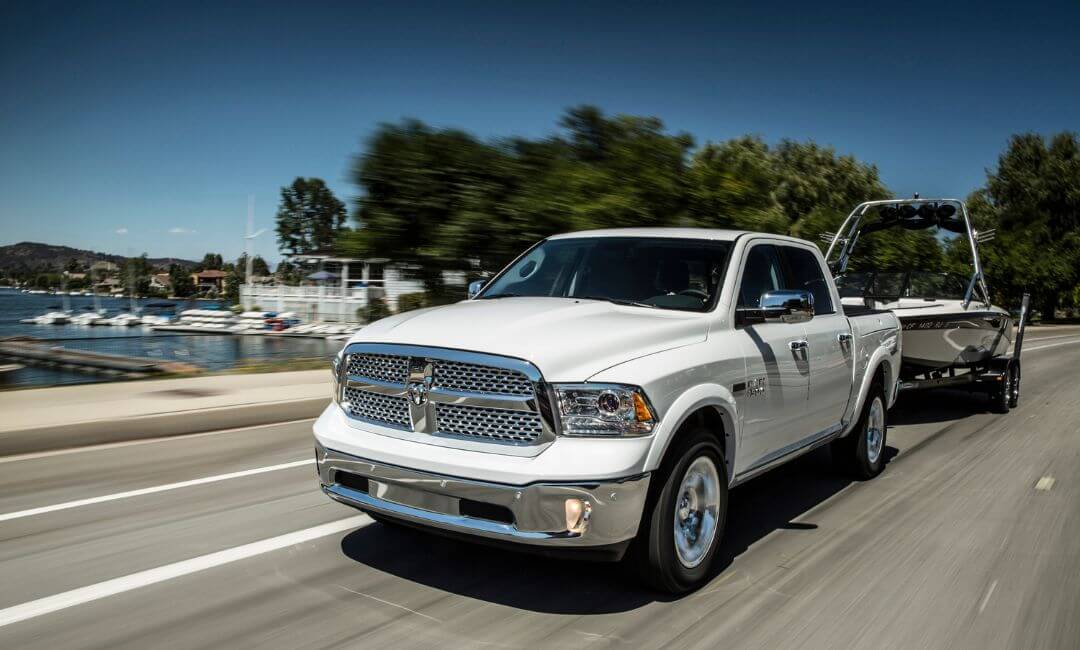
“If you are looking to buy a used Ram 1500 EcoDiesel, you need to be aware of what model years should be avoided, as well as specifics to look out for while on the hunt for a Ram EcoDiesel owner.” Indeed, the prospect of tons of torque, towing capability, and efficiency was enticing. Still, multiple model years were plagued by industry-wide issues that led to engine failures, expensive repairs, and poor reliability. Here are the Ram EcoDiesel years to avoid, according to reports from owners, mechanics, airbag incidents, real-world driving experiences, and recalls.
1. 2014 Ram EcoDiesel – First-Year Frustrations
In 2014, the popular 3.0L V6 diesel model made its debut in the Ram EcoDiesel. Being the first generation, it unfortunately had a long list of flaws that filled early purchasers with regret.
Common complaints include:
- EGR cooler catastrophes
- Oil cooler leaks
- Turbocharger issues
- Emissions system malfunctions
Many owners had their engine failures before they even reached 100,000 miles. These problems were not only annoying but also expensive to repair, sometimes costing more than $6,000. One of the worst years for major engine issues is the 2014 model year, based on information from CarComplaints and the NHTSA.
Verdict: Skip it unless you get a full-service record, new parts, and a warranty. It’s simply too risky, in my opinion.
2. 2015 Ram EcoDiesel – Slightly Better, But Still Risky
Ram made a few tweaks to the 2015 EcoDiesel, but they were not enough to resolve the recurring problems. Although they have fewer issues than the 2014 models, the 2015 models are not exactly problem-free cars either.
Common problems include:
- May become plugged up
- Clogged EGR valves
- Excessive oil consumption
- ECU (Engine Control Unit), which caused the erratic engine antics
Various respondents also reported experiencing repeated check engine lights, difficulty starting in cold weather, and variable fuel economy. Although muted compared to 2014, the expense of repairs was still high, and problems would resurface.
Verdict: Unless the truck was well-maintained and has records of emissions system service, you should stay away from the 2015 model.
3. 2016 Ram EcoDiesel – The Year of Emissions Woes
The 2016 Ram EcoDiesel is infamous due to its own emissions scandal, which was similar to the shenanigans that plagued VW’s diesel models. This model year saw a spike in complaints after software upgrades were introduced to comply with emissions standards, which were forced upon the company.
Typical driver gripes following an update:
- Rough idling
- Noticeable loss of power
- Lower gas mileage (possibly by 3–5 mpg)
- Delayed throttle response
These were not “mechanical breakdowns” in the traditional sense but instead malfunctions in the emissions software. Many owners said their trucks were ” never the same” after dealership updates.
Verdict: Unless you can confirm that the truck missed this recall or has been restored to factory tuning specifications, the 2016 EcoDiesel poses a risk.
The 2014, 2015, and 2016 Ram EcoDiesel is an easy bet if you feel lucky and have deep pockets. They already have major engine and emissions system issues that, in some cases, can cost you thousands of dollars in repairs and reduced performance. If shopping for used, skip these early years and look for later models that boast better reliability and engineering.
3.0 EcoDiesel Problems: What Owners Regret Most
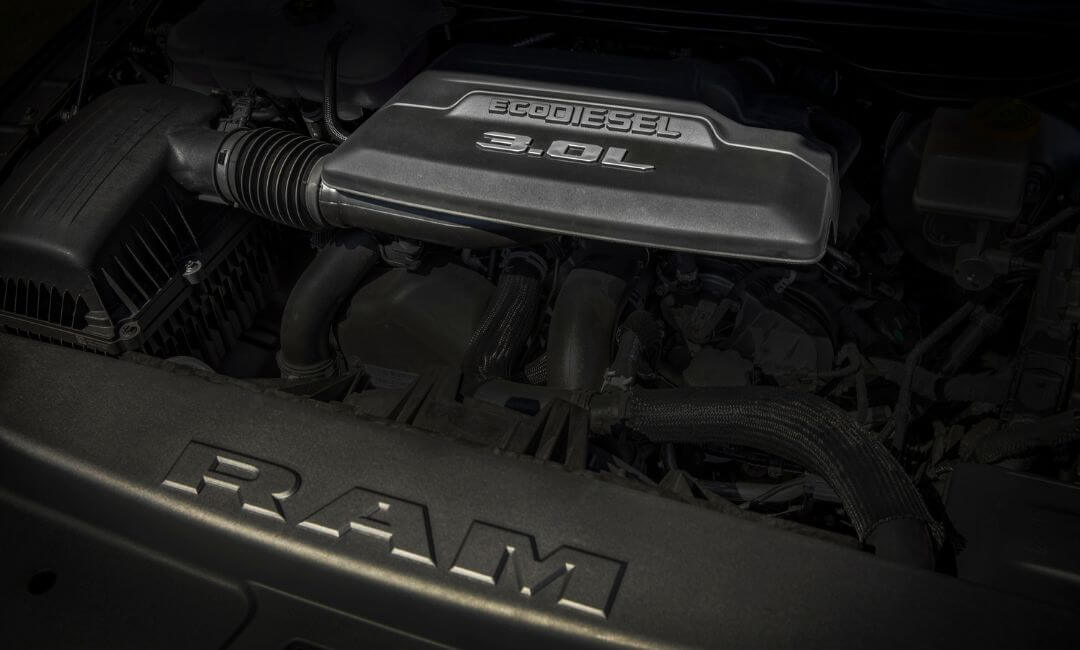
If you’re considering a used Ram EcoDiesel, it’s essential to be aware of the issues that have plagued this engine across multiple model years. The 3.0L V6 EcoDiesel, with its promise of good fuel mileage and ample low-end torque, has led many owners to frustration as they contend with catastrophic breakdowns and the corresponding bills. Below are the most frequent 3.0 EcoDiesel complaints that leave buyers regretting their decision—and what you should look out for.
1. EGR Cooler Failures
The most common issue with these early Ram EcoDiesels is the Exhaust Gas Recirculation (EGR) cooler. These coolers are known for cracking, a failure mode that can cause coolant to spill directly into the engine’s intake system. In the worst cases, this results in engine hydrolock, a disaster that can necessitate a completely new engine. Although recalls have been launched, many owners continue to report long-term reliability issues after the repair.
2. Oil Cooler Leaks
The 3.0L EcoDiesel also has a reputation for its oil coolers failing. Such failures can result in the mixing of oil and coolant, poor lubrication, overheating, and, ultimately, severe engine damage. A simple leak today can, if you don’t notice it right away, become a need for a whole new engine. *
3. Turbocharger Failure
Abrupt turbocharger failures there have been many Ram EcoDiesel owners that have had sudden turbos shit the bed, sometimes without warning. The culprit? Inadequate Oil flow and carbon build-up in turbo charge piping. A turbo replacement can cost thousands, and without proper diagnosis, it’s invariably overlooked until performance suffers.
4. Emissions System Glitches
The ATGreyWolf, the emissions system – comprising a DPF, EGR valve, and SCR – on the EcoDiesel setup is highly complicated and service-intensive. Owners report loss of power and decreased MPG after computer updates to comply with emissions requirements. The problem, however, is that these improvements often made the driving experience worse, not better.
5. Expensive Repairs
Even minor issues with the EcoDiesel can result in costly repairs. Due to the intricate arrangement of diesel-specific parts, repair bills often vary from $4,000 up to $7,000. For many owners, this subscription was the final straw.
Towing and efficiency are strengths of the Ram EcoDiesel, but these issues are why you should avoid certain model years. Always check the EGR system, oil cooler, turbocharger, and emissions components before buying a used one—and verify the dedication of all recall and service history.
Real Stories from Ram EcoDiesel Owners
Behind all the complaints is a single driver who once had faith in the promise of the Ram EcoDiesel. For many, the initial attraction of better fuel economy and the ability to tow heavy loads with a diesel engine rapidly gave way to letdowns. Online forums like RamTrucks. Diesel Place and Car Complaints is strewn with tales like these of drivers who felt betrayed by unrelenting mechanical and emissions woes.
“I bought a 2015 EcoDiesel thinking I was upgrading. Six months later, it was in the shop for a cracked EGR cooler. $3,800 later, I sold it and went back to gas.”
— Marcus R., Texas
Marcus isn’t alone. The EGR cooler is also a significant failure point (and expensive repair) on the early EcoDiesel trucks. For owners like him, the financial hit is not just the repair — it’s the trust they feel they have lost in the brand.
“The 2016 model was great until the emissions recall. After the update, it felt sluggish, and the mileage dropped five mpg.”
— Andrea K., Michigan
Thousands with mandatory emissions updates report that their performance and fuel economy noticeably declined after the updates were implemented. Andrea’s frustration is echoed across a worrying number. Many drivers said their trucks ” never rode the same again.”
These narratives provide real-world evidence that not all Ram EcoDiesel years were made equally.
Read More:
- Mazda CX5 Years to Avoid and the Worst Problems They Have
- Chevy Trax Years to Avoid and the Worst Problems to Watch For
- Toyota Tundra Years to Avoid and the Worst Problems Owners Faced
Ram EcoDiesel Models Worth Considering
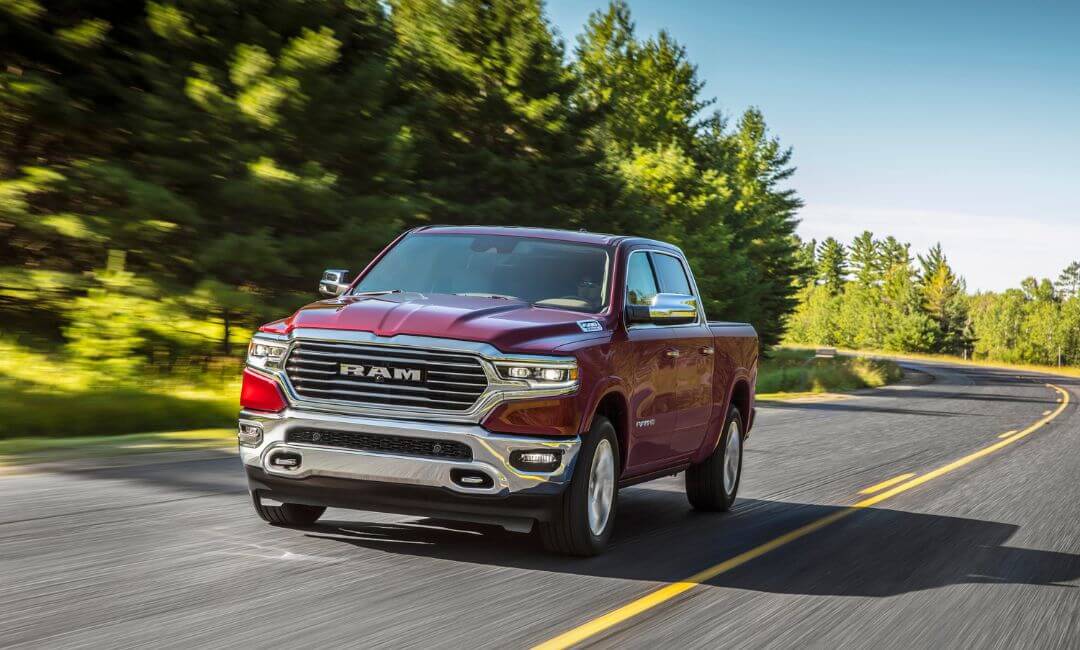
It’s not all bleak and slow in EcoDiesel la-la land. The early years had a bad reputation, but Ram fixed most of them in the 2020 models. The third iteration of the 3.0-liter EcoDiesel, unofficially known as the “Gen 3,” addresses several issues that plagued its predecessors – and this is evident in real-world performance and owner satisfaction.
1. 2020–2022 Ram 1500 EcoDiesel
These models feature a completely redesigned engine comprising more than 80% new parts, including higher-rated fuel injectors, a stronger EGR system, and a more efficient variable-geometry turbo. The result? More responsive power, crisper performance, and fewer mechanical failures.
A boost in towing capacity of up to 12,560 pounds and highway fuel economy of more than 30 mpg are two additional points of interest, meaning the new line of Silverados are some of the most fuel-efficient full-size trucks available. Based on reviews and owner feedback, the 2020–2022 EcoDiesels are significantly more reliable, with fewer NHTSA complaints and higher satisfaction scores across all our metrics.
“My 2021 EcoDiesel pulls my 5th wheel with ease and still gives me 22 mpg. Best truck I’ve owned.”
— George W., Colorado
If you’re looking for a diesel-powered RAM, the 2020 to 2022 models are the safest bet—blending torque, towing, and efficiency with proven reliability.
Expert Opinions: What Mechanics and Reviewers Say
When it comes to the Ram EcoDiesel, experienced mechanics and auto journalists have a lot to say—especially regarding the early model years. It’s generally accepted that while the idea was clever, the first-gen EcoDiesel models (2014–2016) were more sluggish than they were powerful.
Mike Kilpatrick, an A.S.E.-certified diesel technician of more than 20 years, doesn’t pull any punches:
“I would steer clear of first-gen EcoDiesel unless you’re prepared to replace half the emissions system. I’ve seen too many come in with EGR, DPF, and oil cooler issues before reaching 100,000 miles. “These are modern images — they are much more polished.”
His experience reflects what several owners have already found out the hard way – first-generation EcoDiesels might be stellar on paper, but reliability is often lacking.
Edmunds also shared its thoughts on how the platform has evolved:
“The third-generation EcoDiesel addressed a majority of the issues that impacted the previous generations. In brief: If you’re going diesel, more recent is better.”
Their reviews of the 2020–2022 Ram EcoDiesel models reference improved performance, reduced noise, and fewer service bulletins.
Combined, these expert voices send a clear message: if you’re in the market for a Ram with an EcoDiesel, avoid the first few model years and target Gen 3 models — they’re better buys and much less likely to leave you stranded.
Final Verdict: What Year Is EcoDiesel to Avoid?
If you are shopping used, avoid 2014–2016 Ram EcoDiesel models. These are the years marked by engine and emissions-related problems that can cost thousands of dollars to fix — and many owners say they would not repurchase them.
Instead, if you absolutely must have a diesel, opt for the 2020–2022 models, which have a few years of engineering under their belt and are generally more reliable.
Call to Action: Be a Smart Buyer
What to consider before buying a used Ram EcoDiesel:
- Ask for the whole service history every time
- Check a VIN on sites like Carfax or AutoCheck
- Have it inspected before purchasing by a mechanic who is certified to work on diesel
- Get an extended warranty for older models
Trying to avoid future regret (not to mention hemorrhaging cash)? Intuition and two specs shouldn’t be your only guides; do your research on the year and history of any Ram EcoDiesel you’re considering.

